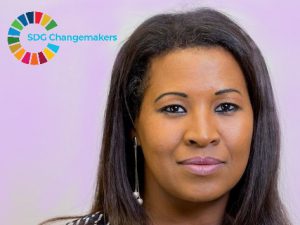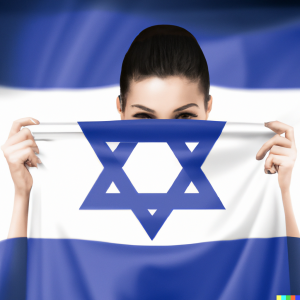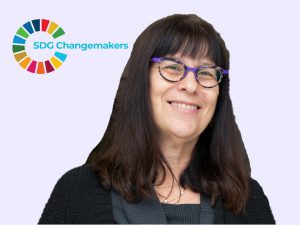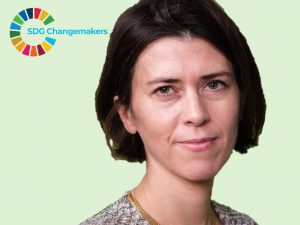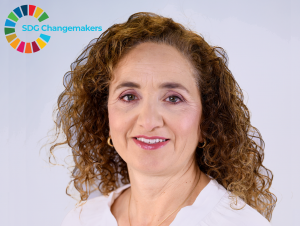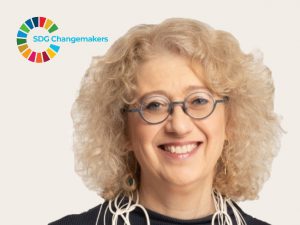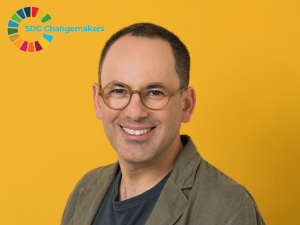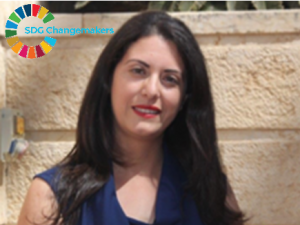Deputy Director-General
Authority for the Advancement of the Status of Women
SII: Please briefly describe your work
OYF: In my role at the Israel Social Equality Ministry’s Authority for the Advancement of the Status of Women, I am responsible for gender assessment including Government resolutions, parliamentary legislation, work plans and budgets. In promoting gender equality in general and the status of women in particular, my tasks include coordinating among bodies that deal with the status of women, advancing programs to eradicate violence against women and their exclusion, as well as activities to eliminate prostitution in the country.
SII: What particularly motivates you to make a difference?
OYF: For years, people have been talking about the status of women and the gender gaps prevalent almost everywhere. The MeToo era opened additional channels in this context, particularly in raising awareness of the various phenomena that harm women. Significant steps are now being taken to deal with these gaps thanks to women’s organizations in Israel and the world over, but there’s still a long way to go.
As a statutory body, the Authority for the Advancement of the Status of Women is a key player in promoting discourse and changing policy. I believe that the more the public learns about the Authority’s work, the greater the responsibility and weight behind our activities as the Government body in charge of assisting Israel’s women. I have no doubt about the need for Government investment, resources and policy development committed to the goal of gender equality. Fair representation of women in various spheres is the ultimate social interest – one that is also deeply rooted in the law.
I’m particularly interested in education in the context of my work. A true concept of equality, one that includes behavioral aspects and not only declarative ones, requires us – as the body responsible for instilling gender equality thinking – to act within the framework of early childhood education to the extent that the learning process can facilitate that. Educating for equal opportunity means a commitment to enabling self-fulfillment in the present as the foundation for personal and social wellbeing, as well as personal achievement that reflects the capabilities and aspirations of female and male students as they mature.
SII: What positive impact do you see emerging through your activity?
OYF: One tangible example of the Authority’s positive impact has to do with the low percentage of women in senior roles. In January 2020 we launched a new database with the specific goal of promoting the candidature of women for senior positions in civil service, Government companies and public boards as well as their participation in various fora such as conferences and media panels. We set our initial goal at 500 – around 4,000 women actually registered; about 2,200 of them completed the process and were found to possess the necessary qualifications.
The database has a dual objective: on the one hand, it helps managers seeking to fill senior positions to locate women candidates with the relevant experience and expertise. On the other hand, it promotes equal opportunity for women from communities that are barely represented in senior positions: Arab, Haredi Jewish, Ethiopian, the former Soviet Union, older women and those from the socio-economic periphery.
SII: What is your favorite project?
OYF: That’s a tough question, I’ll admit. One of the first areas I had to deal with was education, which as I mentioned is very close to my heart. In the past year the Authority, together with the Education Ministry, launched a pilot program to immerse young children aged 3-6 in gender equality thinking. The pilot now operates in 77 kindergartens located in nine municipalities.
Educating for gender equality needs to take place from pre-school through the end of high school. The Authority attaches great importance to this type of education as a long-term means to advance equality between the sexes as well as to reduce violence against women. Equal opportunity in the context of education means creating an educational-cultural environment that ensures equal access to diverse educational experiences and both encourages and advances female and male students in accordance with their abilities and skills. This needs to be accomplished in a substantive way, not through stereotypes – on the ground, not just declarative.
SII: You are the highest-ranking member of the Ethiopian community in the Israel Government’s civil service. As such, how do you feel – as a woman, and specifically as an Ethiopian woman?
OYF: At the personal level, I feel so privileged to hold a position that is both incredibly important and also very much dovetails with my own vision of the direction that my professional and personal development is taking. I find it an exciting place to be, especially if it helps others from the community to find their way to senior roles. Professionally speaking, my motivation to effect genuine change with regard to gender equality also stems from a desire to pave the way for confronting injustices that exist from time immemorial. The ability to ensure that the diverse voices of women from all walks are heard is a tremendous privilege that also carries a huge responsibility. I am in awe of where I am situated and hope that every step we take does indeed lead to the intended results.
SII: How has your work been affected by the COVID-19 crisis?
OYF: The existing gaps among girls have clearly grown since the outbreak of the pandemic. This period carries with it numerous opportunities, possibilities and challenges in promoting gender equality as part of a process of gender equality gap reduction in early childhood.
More about Oshra Yosef-Friedman
Oshra joined the Authority for the Advancement of the Status of Women in 2018 following years of experience in the areas of social activism and education. From 2017-18 she assisted the “Organization for Joint Israeli Leadership” with resource development; between 2016-17 she worked as Vice President of Planning and Resource Development at “Tebeka – Justice & Equality for Ethiopian Israelis”; in 2006 she established the Ephraim Katzir Scholarship Fund within the Rashi Foundation and managed it until 2016.
She is currently pursuing a doctorate in education and leadership from Haifa University, after earning her Master’s degree in immigration and social absorption from the Ruppin Academic College in 2007 and her Bachelor’s degree in criminology and human resources from Bar Ilan University in 2002.
Oshra participated in the round table established by the Israel Police Commissioner following the large protest of the Ethiopian Israeli community in May 2016. She arrived in Israel from Ethiopia with “Operation Moses” in 1984, when she was seven years old.


